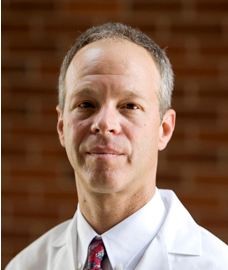GVN Center and Member Spotlight

Dr. David Ostrov
Associate Professor
University of Florida, Department of Pathology, Immunology and Laboratory Medicine
University of Florida College of Medicine
Florida, United States
What are you and your institution currently working on regarding COVID-19?
We are studying genetic risk factors for SARS-CoV-2 infection, drugs for prevention and treatment, and developing rapid diagnostic tests. Since many severe COVID-19 patients lack known risk factors (such as advanced age and comorbidities), we are conducting an association study comparing the genotypes of asymptomatic and symptomatic SARS-CoV-2+ subjects to identify biomarkers associated with risk. In addition, new SARS-CoV-2 sequence variants provide the basis for: 1) a machine learning strategy to pinpoint structural sites for drug targeting, 2) high-throughput in silico screening, and 3) in vitro assays to measure anti-SARS-CoV-2 activities. Validation studies are underway for a 45 minute, CRISPR-based, point-of-care diagnostic test for SARS-CoV-2 detection in saliva.
Please, provide details on your research involving compounds to target ACE-2.
We have experience using structural information to target proteins with drugs and drug-like molecules, including the SARS coronavirus receptor ACE2. We adopted a methodology to utilize multiple structural sites on target proteins to increase the likelihood of identifying bioactive small molecules. For example, by targeting separate structural pockets, we identified inhibitors and enhancers of ACE2 catalytic activity. In previous studies, we identified an ACE2 inhibitor that interfered with the ACE2/SARS-CoV-1 spike glycoprotein interaction. Recently, we demonstrated antiviral activities of FDA approved ACE2-binding drugs against SARS-CoV-2 isolates in vitro. In addition, we found that usage of specific drugs with in vitro antiviral properties was associated with reduced incidence of SARS-CoV-2 positivity in a health system population.
Biosketch
Dr. Ostrov is a tenured Associate Professor specializing in immunology and x-ray crystallography. Dr. Ostrov solved the first crystal structure of CTLA-4, an important drug target for cancer checkpoint inhibitors. Dr. Ostrov was the first to demonstrate drug/Human Leukocyte Antigen binding mechanisms that underlie immune stimulation (for drug hypersensitivity) and attenuation of immunity (for inhibition of autoimmune diabetes).
Dr. Ostrov’s group utilizes methods in structure-based drug design to discover and develop novel therapies for preventing and treating a diverse set of human diseases. His team focuses on developing novel therapeutic approaches to treat myeloma, leukemia, lymphoma, breast cancer, prostate cancer, colon cancer, brain cancer, lung cancer, esophageal cancer, childhood cancers, graft-versus-host disease, autoimmune diseases such as type I diabetes, lupus, rheumatoid arthritis, celiac disease, multiple sclerosis, Sjogren’s syndrome and emerging pathogens such as HIV and SARS-CoV-2.
Overview of University of Florida Health
The University of Florida Academic Health Center is the country’s only academic health center with six health-related colleges located on a single, contiguous campus (College of Dentistry, College of Medicine, College of Nursing, College of Pharmacy, College of Public Health and Health Professions, College of Veterinary Medicine). Colleges, major research centers and institutes and clinical enterprise focus on building collaborative specialized clinical services centered on quality and innovation. The colleges teach the full continuum of higher education from undergraduates to professional students to advanced post-doctoral students. The academic health center is a world leader in interdisciplinary research, generating 52 percent of University of Florida’s total research awards. Seven major health-related research centers and institutes are designed to create synergies and collaborative research opportunities. Research activities reflect a depth of purpose by focusing on the translational nature of biomedical research, following the continuum from fundamental research to clinical research to patient care. The University of Florida Health Science Center includes two primary campuses in Gainesville and Jacksonville as well as numerous educational, clinical and research affiliates across the state.
